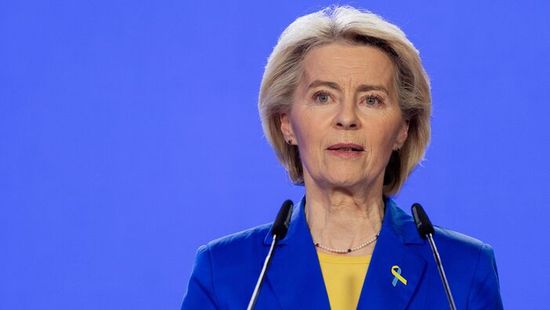Orbán móresre tanította Von der Leyent: megmutatta neki, mire képesek a magyarok (VIDEÓ)

„A szuvereintás jobb üzlet” – jelentette ki a Nézőpont Intézet vezetője.

The IMF and EU pushed Hungary to move forward with more sweeping cost-cutting efforts that would reduce recurring government obligations.
„Inside the Ministry for National Economy here, a sign proclaims a "revolution" in Hungarian politics and declares that the country has regained its "ability for autonomy." The notice signals the new Hungarian government's determination to set its own economic agenda, even if that costs it the support of the International Monetary Fund and European Union. That support is the subject of a standoff between Budapest and the two organizations, which recently halted bailout-loan talks, saying Hungary wasn't doing enough to make durable cuts in state spending. The IMF has said it is willing to resume negotiations. But Hungary's Prime Minister, Viktor Orban, has indicated that his country intends to go it alone.
Mr. Orban, who took office in late May after a landslide election victory, has made it clear that he believes Hungary can survive without more IMF and EU aid, if the alternative is having to compromise on his plans to boost economic growth and create jobs. "It's an economic freedom fight," said a senior official in Mr. Orban's administration. "We are getting back the financial independence of the country."
Hungary's rebellion against the budget-cutting approach of the IMF and EU is an unwelcome development for leaders of the two organizations, who also are trying to enforce austerity programs for other governments, such as Greece's, that have been bailed out after amassing large public debts. "It could be a very important precedent for other countries," says Mark Weisbrot, an economist at the Center for Economic and Policy Research in Washington and a critic of the IMF. "There needs to be more flexibility and more rationality injected into these policies." Mr. Orban, a populist politician who made a name for himself by calling for the removal of Russian troops from Hungary in the early days of the country's transition from communism to democracy, is promoting what his aides call a "patriotic economic policy."”